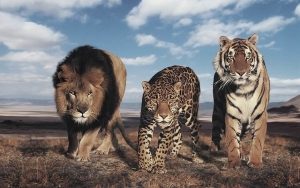
The largest wild cats
By Naadiya Adams
In a first for Africa, a team of scientists from the University of Pretoria has published the only study that entailed genomic One Health investigations, which revealed that Delta variants of COVID-19 were transmitted from humans to animals.
One Health is an approach that recognizes that the health of people is closely connected to the health of animals in a shared environment. Radio Islam spoke to one of the leaders of the study, Professor Marietjie Venter, who is also Head of the Zoonotic, Arbo- and Respiratory Virus Programme at UP’s Department of Medical Virology.
“During the first wave, there were pumas at a private zoo in Johannesburg that showed respiratory signs and they were tested for Covid-19 and they actually tested positive but we had sequence samples so we couldn’t really investigate much further,” said Venter.
Venter went on to explain a second sample that was taken in June last year, the same zoo reported that three of their lions were showing respiratory symptoms indicative of Covid-19.
“They had difficulty breathing and one of the lions developed pneumonia… so we tested them and they all tested positive for Covid-19, then we sequenced the genomes and it turned out to be the Delta variant which was circulating in South Africa at that stage,” explained Venter.
Venter and her team had a subsequent visit to the zoo where they began testing humans who were known to be in constant contact with the animals, and the team managed to track down “the big cat keeper”, who when tested for covid-19 was also positive with the delta variant.
While not all animals are susceptible to the disease, cats have been proven to be at risk when exposed to humans who have contracted the virus. Venter says that around the globe, lions, pumas and tigers all tested positive for Covid-19 and even some cases of domestic cats getting infected have been reported.
She says it’s possible for dogs to get infected as well but they are seemingly not as susceptible to the virus. Different variants affect animals differently says Venter and she says there had been a severe outbreak among minks at a farm in Europe which saw 300 000 minks having to be culled.
Venter stresses the importance of those working with these animals to firstly be vaccinated and always be masked.







0 Comments